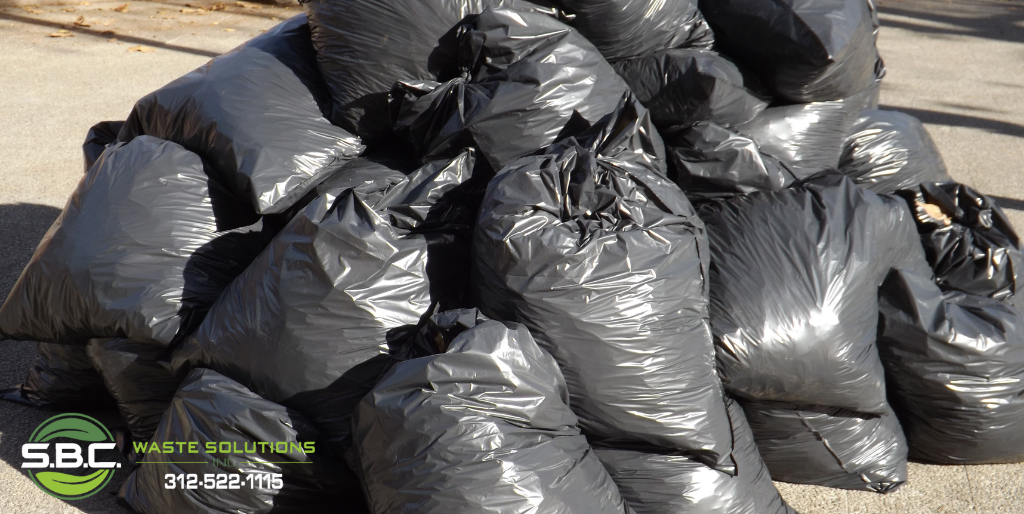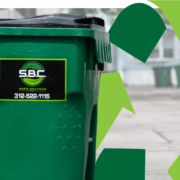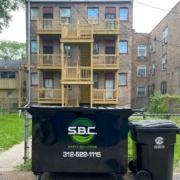A Comprehensive Guide to Responsible Waste Management
A Comprehensive Guide to Responsible Waste Management
In today’s society, the topic of waste management has become increasingly prevalent. We are becoming more aware of our impact on the environment and the consequences of not properly managing waste. From plastic pollution in our oceans to overflowing landfills, it is clear that our current practices are simply not sustainable for future generations. As individuals and businesses alike search for ways to reduce their carbon footprint and contribute positively to our planet, responsible waste management has become a top priority. In this comprehensive guide, we will delve into all aspects of waste management – from its definition and importance to best practices and innovative solutions. Whether you’re a concerned citizen looking to make a positive change or a business owner searching for eco-friendly options, this blog post aims to provide valuable insights on how we can all play a role in responsible waste management.
The concept of responsible waste management
Responsible waste management is an essential concept that cannot be ignored in toda y’s world. With the population increasing at an alarming rate, the amount of waste generated has also increased exponentially, leading to environmental problems such as pollution, climate change, and resource depletion. Effective waste management is crucial to reducing these negative impacts and sustaining our planet for future generations. By adopting sustainable practices such as recycling, composting, and proper disposal, we can conserve natural resources, reduce the amount of waste that goes to landfills and incinerators, and mitigate the environmental consequences of waste generation. Moreover, responsible waste management also offers economic benefits as it creates job opportunities and promotes the growth of green industries. Therefore, it is imperative that we take responsibility for our waste and work towards a sustainable future.

Waste Disposal Near Me
The importance of reducing, reusing, and recycling
Reducing, reusing, and recycling waste is crucial for responsible waste management, as it helps to minimize the amount of waste that ends up in landfills or in the ocean. By reducing waste, we reduce the strain on our limited natural resources and decrease the amount of energy required to produce new materials. Reusing materials helps to conserve energy and reduce the amount of waste that is generated, while recycling materials like aluminum, paper, and plastic can help to conserve valuable resources that would have otherwise gone to waste. Additionally, recycling reduces the amount of greenhouse gases emitted during the manufacturing process of new products, thereby helping to stave off climate change. It is estimated that if every person in the United States recycled just one plastic bottle, it would save enough energy to power a computer for 25 minutes. By practicing the three R’s of waste management, we can all make a meaningful contribution to preserving the planet for future generations.
Ways to reduce waste at home
In today’s world, waste management service is not just a good practice; it’s a necessity. Even small actions can make a big difference when it comes to reducing waste, and there are plenty of ways to start at home. One solution is to invest in reusable containers. Instead of buying single-use bags and plastic wrap, opt for durable containers that can be used over and over again. Additionally, buying in bulk can help minimize waste by reducing packaging and often comes with a lower price tag. Finally, avoiding single-use items altogether, such as plastic straws or utensils, can significantly decrease the amount of waste that winds up in landfills and oceans. By adopting these simple habits, households can both save money and help preserve the planet.
Creative ways to repurpose common household items
Throwing away items at home not only increases our carbon footprint but also affects the environment negatively. However, there are several creative ways to repurpose common household items instead of throwing them away. For instance, an old pair of jeans can be made into a stylish tote bag that is not only fashionable but also eco-friendly. Empty glass jars can be transformed into candle holders or storage containers for nuts, spices, or cereals. Empty egg cartons can be used as seed starters for plants, instead of buying new ones. By repurposing common household items, we can reduce our waste footprint and save money while adding a touch of creativity to our lives. These simple changes can result in a significant positive impact on the planet.
How to properly recycle different materials
Recycling waste is an effective way, particularly for materials such as paper, plastic, and glass that are commonly used in households and businesses. Properly recycling these materials not only reduces the amount of waste going to landfills, but it also conserves resources and energy that would otherwise be needed to manufacture new products. When recycling paper, it is important to sort it based on its grade, and for plastic and glass, it is advisable to separate them based on their type. Additionally, it is crucial to rinse and clean these materials before placing them in the recycling bin to prevent contamination. Recycling not only benefits the environment but also the economy as it creates jobs and generates income. By taking responsibility for our waste, we can contribute to a cleaner and more sustainable future.

Waste Management Services
The impact of improper waste disposal on our planet
Improper waste disposal has a disastrous impact on our planet. Each year, millions of tons of waste are dumped into our oceans, rivers, and landfills, contaminating the natural environment and threatening the health of both humans and wildlife. The effects of this practice are far-reaching, leading to soil degradation, air and water pollution, and the release of toxic chemicals that can contaminate ecosystems for years to come. But we can prevent this tragedy from taking place. By adopting sustainable waste management practices, such as recycling, composting, and reducing waste, we can significantly reduce our impact on the environment and preserve the planet for future generations. It’s time to take responsibility for our actions and take the necessary steps towards a cleaner, healthier planet.
Tips for composting at home and its benefits
Composting is a simple yet highly effective way to manage waste at home. Not only does it reduce the amount of organic waste that ends up in landfills, but it also provides a range of benefits for both the environment and your garden. By composting, you can create a nutrient-rich soil amendment that can improve soil health, retain moisture, and promote healthy plant growth. Additionally, composting can help reduce greenhouse gas emissions by diverting food waste from landfills, ultimately reducing the impact of climate change. To ensure successful composting, it’s essential to balance the right mix of brown and green materials, maintain the proper moisture levels, and turn the compost pile regularly. With a little bit of effort and time, you can turn your food scraps and yard waste into a valuable resource that benefits both your garden and the planet.
As we can see, waste management plays a crucial role in preserving the planet for future generations. From reducing waste at home to properly recycling and composting, there are many ways individuals can make a positive impact on the environment. Additionally, businesses have a responsibility to adopt sustainable practices and reduce their waste footprint. As consumers, we can support these companies by making conscious decisions to purchase from sustainable and eco-friendly businesses. By working together, we can create a cleaner and healthier planet for ourselves and future generations to come. So let’s make responsible waste management a priority in our daily lives and take action towards a more sustainable future. Fortunately, with the rise of environmentally conscious companies and the increasing popularity of eco-friendly products, consumers now have more options than ever to support sustainable businesses. This includes choosing products made from recycled materials, investing in renewable energy sources, and supporting companies that prioritize responsible waste management practices. By doing so, we can send a message to businesses that sustainability is important to us as consumers. Together, we can create a more sustainable future for our planet and make a positive impact on the environment.
https://www.google.com/maps?cid=4180240075447051620








Leave a Reply
Want to join the discussion?Feel free to contribute!